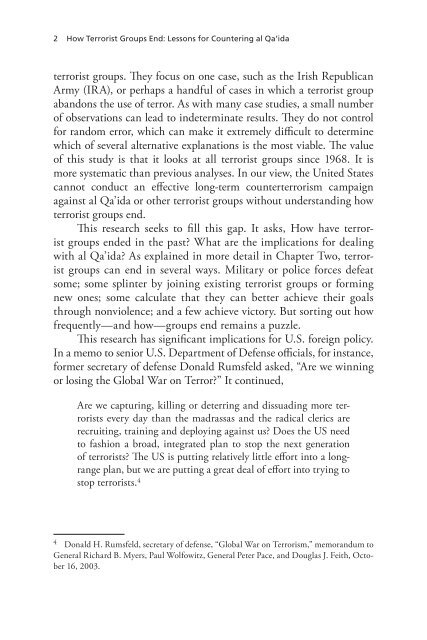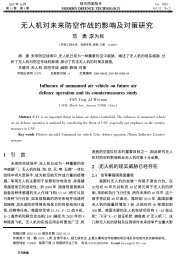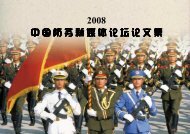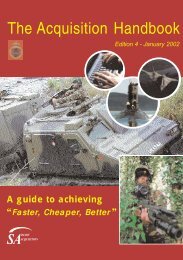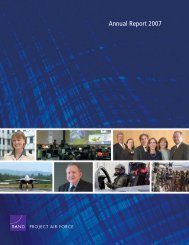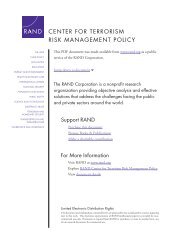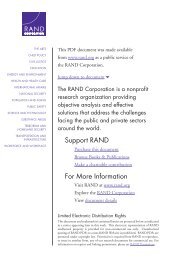How Terrorist Groups End - RAND Corporation
How Terrorist Groups End - RAND Corporation
How Terrorist Groups End - RAND Corporation
Create successful ePaper yourself
Turn your PDF publications into a flip-book with our unique Google optimized e-Paper software.
2 <strong>How</strong> <strong>Terrorist</strong> <strong>Groups</strong> <strong>End</strong>: Lessons for Countering al Qa’ida<br />
terrorist groups. They focus on one case, such as the Irish Republican<br />
Army (IRA), or perhaps a handful of cases in which a terrorist group<br />
abandons the use of terror. As with many case studies, a small number<br />
of observations can lead to indeterminate results. They do not control<br />
for random error, which can make it extremely difficult to determine<br />
which of several alternative explanations is the most viable. The value<br />
of this study is that it looks at all terrorist groups since 1968. It is<br />
more systematic than previous analyses. In our view, the United States<br />
cannot conduct an effective long-term counterterrorism campaign<br />
against al Qa’ida or other terrorist groups without understanding how<br />
terrorist groups end.<br />
This research seeks to fill this gap. It asks, <strong>How</strong> have terrorist<br />
groups ended in the past? What are the implications for dealing<br />
with al Qa’ida? As explained in more detail in Chapter Two, terrorist<br />
groups can end in several ways. Military or police forces defeat<br />
some; some splinter by joining existing terrorist groups or forming<br />
new ones; some calculate that they can better achieve their goals<br />
through nonviolence; and a few achieve victory. But sorting out how<br />
frequently—and how—groups end remains a puzzle.<br />
This research has significant implications for U.S. foreign policy.<br />
In a memo to senior U.S. Department of Defense officials, for instance,<br />
former secretary of defense Donald Rumsfeld asked, “Are we winning<br />
or losing the Global War on Terror?” It continued,<br />
Are we capturing, killing or deterring and dissuading more terrorists<br />
every day than the madrassas and the radical clerics are<br />
recruiting, training and deploying against us? Does the US need<br />
to fashion a broad, integrated plan to stop the next generation<br />
of terrorists? The US is putting relatively little effort into a longrange<br />
plan, but we are putting a great deal of effort into trying to<br />
stop terrorists. 4<br />
4 Donald H. Rumsfeld, secretary of defense, “Global War on Terrorism,” memorandum to<br />
General Richard B. Myers, Paul Wolfowitz, General Peter Pace, and Douglas J. Feith, October<br />
16, 2003.


